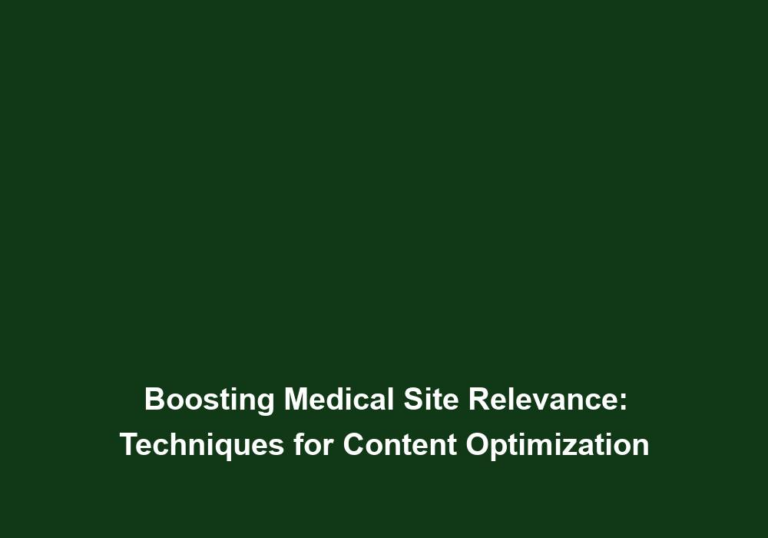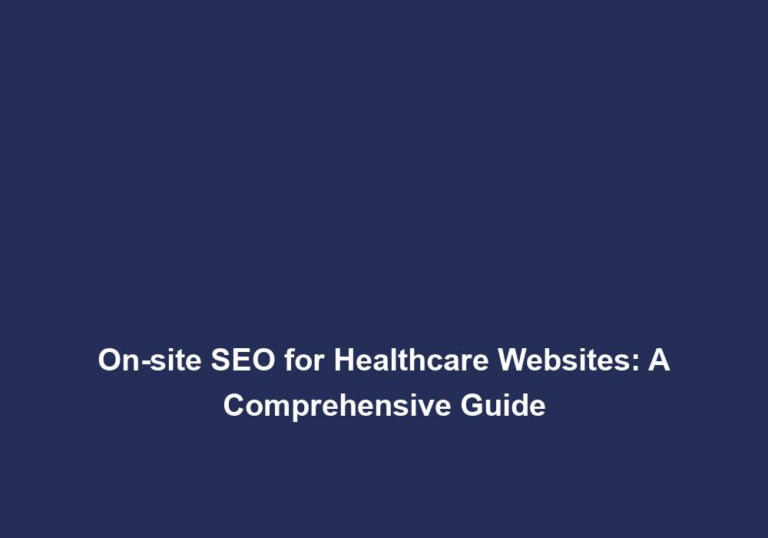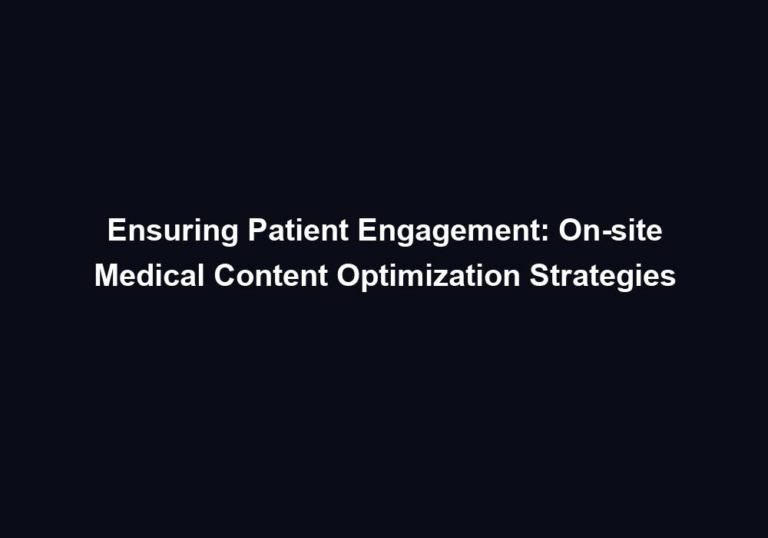Driving Relevant Traffic: Mastering Keyword Research in the Healthcare Niche
In today’s digital world, driving relevant traffic to your healthcare website is crucial for its success. With the increasing competition and evolving search engine algorithms, mastering keyword research has become a fundamental aspect of any effective SEO content strategy. By understanding how to identify and leverage the right keywords, you can optimize your website’s visibility and attract the right audience to your healthcare services or products. In this article, we will delve into the intricacies of keyword research in the healthcare niche, offering valuable insights to help you drive relevant traffic and enhance your online presence.
Why Keyword Research Matters in the Healthcare Niche?
Keyword research serves as the foundation for your healthcare website’s optimization. It involves identifying the words and phrases that your target audience is typing into search engines when looking for healthcare-related information, services, or products. By incorporating these keywords strategically into your content, you improve your chances of appearing higher in search engine results pages (SERPs). This visibility increase leads to a higher volume of organic traffic, resulting in improved brand exposure and potential conversions.
Understanding Your Target Audience
To conduct effective keyword research, you must first understand your target audience in the healthcare niche. Consider the demographics, needs, and preferences of your potential visitors, patients, or customers. By gaining clarity on your audience’s behavior and intent, you can tailor your keyword research to align with their needs and provide relevant content.
When identifying your target audience, ask yourself the following questions:
- What are their healthcare concerns or interests?
- What specific healthcare services or products are they seeking?
- What keywords are they likely to use when searching for information or solutions?
By answering these questions, you can gain valuable insights into your audience’s needs and preferences, allowing you to develop a keyword research strategy that effectively targets them.
Utilizing Keyword Research Tools
Keyword research tools are invaluable resources in the process of driving relevant traffic to your healthcare website. There are several popular tools available, such as Google Keyword Planner, SEMrush, and Moz Keyword Explorer. These tools allow you to discover keyword ideas, analyze search volumes, competition levels, and identify long-tail keywords that may present untapped opportunities.
When using keyword research tools, aim for a balance between high search volume and low competition. This ensures you target keywords that are popular enough to drive traffic but not overly competitive, increasing your chances of ranking well for those keywords.
Some ways to utilize keyword research tools effectively include:
- Conducting thorough keyword research using multiple tools to gather comprehensive data
- Analyzing search volumes to identify high-demand keywords in the healthcare niche
- Assessing competition levels to determine the difficulty of ranking for specific keywords
- Exploring long-tail keywords that may have lower search volumes but higher conversion potential
By leveraging these tools, you can uncover valuable keyword insights and make informed decisions about your content strategy.
Long-Tail Keywords: The Power of Specificity
Long-tail keywords are longer, more specific phrases that users often search for when looking for niche healthcare information or services. While they may have a lower search volume compared to broad keywords, incorporating them into your content can lead to higher conversion rates due to their specificity.
For example, instead of targeting the keyword “heart disease,” consider using long-tail keywords like “natural remedies for reducing cholesterol levels” or “effective exercises for maintaining cardiovascular health.” By focusing on long-tail keywords, you attract a more targeted audience that is actively seeking specific solutions or information within the healthcare niche. This improves the relevancy of your traffic and increases the likelihood of conversions.
On-Page Optimization: Incorporating Keywords Effectively
Once you have identified relevant keywords, it’s essential to incorporate them strategically throughout your website’s content. This process, known as on-page optimization, plays a significant role in driving relevant traffic. Here are a few key areas to focus on:
- Page Titles and Meta Descriptions
Ensure that your page titles and meta descriptions are concise, compelling, and contain your targeted keywords. These elements appear in search results, influencing users’ decision to click on your website.
- Heading Tags and Subheadings
Use heading tags (H1, H2, H3, etc.) to structure your content and make it more scannable for both users and search engines. Incorporate keywords naturally into these headings and subheadings to indicate the relevance of the content.
- Body Content and Alt Text
Write high-quality, informative content that satisfies the intent behind the chosen keywords. Incorporate the keywords organically throughout the body of your content, ensuring a natural flow. Additionally, optimize image alt text by including relevant keywords to improve accessibility and SEO.
- Internal and External Linking
Strategically incorporate internal and external links within your content to enhance the overall user experience. By linking to authoritative healthcare websites and relevant internal pages, you establish credibility and signal to search engines that your content is valuable and trustworthy.
Monitoring and Adjusting Your Keyword Strategy
Keyword research is an ongoing process that requires monitoring and adjustments based on performance and changes in the healthcare landscape. Regularly review your website analytics to identify which keywords are driving the most traffic and conversions. Additionally, stay up-to-date with industry trends and adapt your keyword strategy accordingly to maintain relevance and competitiveness.
Conclusion
Mastering keyword research in the healthcare niche is essential for driving relevant traffic to your website. By understanding your target audience, utilizing keyword research tools, focusing on long-tail keywords, and effectively incorporating keywords into your content, you can optimize your website’s visibility and attract the right audience. Remember to monitor and adjust your keyword strategy regularly to stay ahead of the competition and maintain your online presence in the ever-evolving healthcare landscape.






